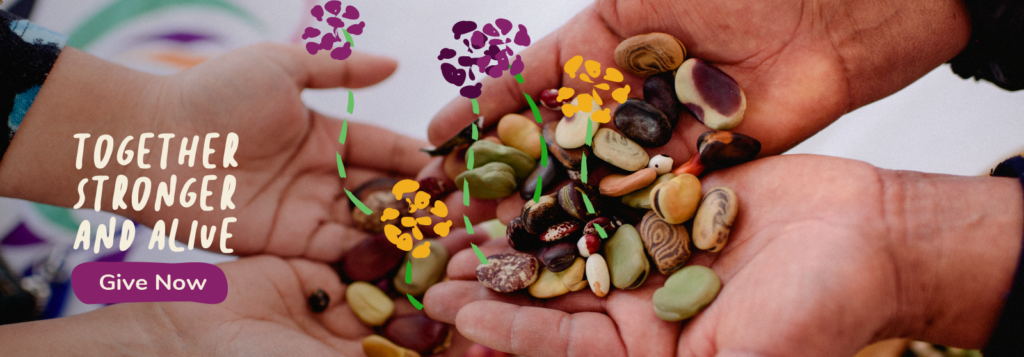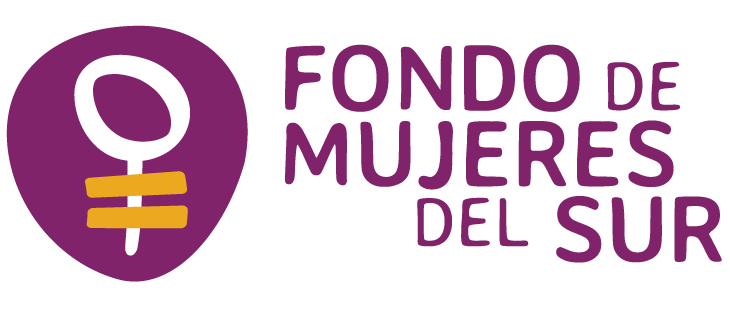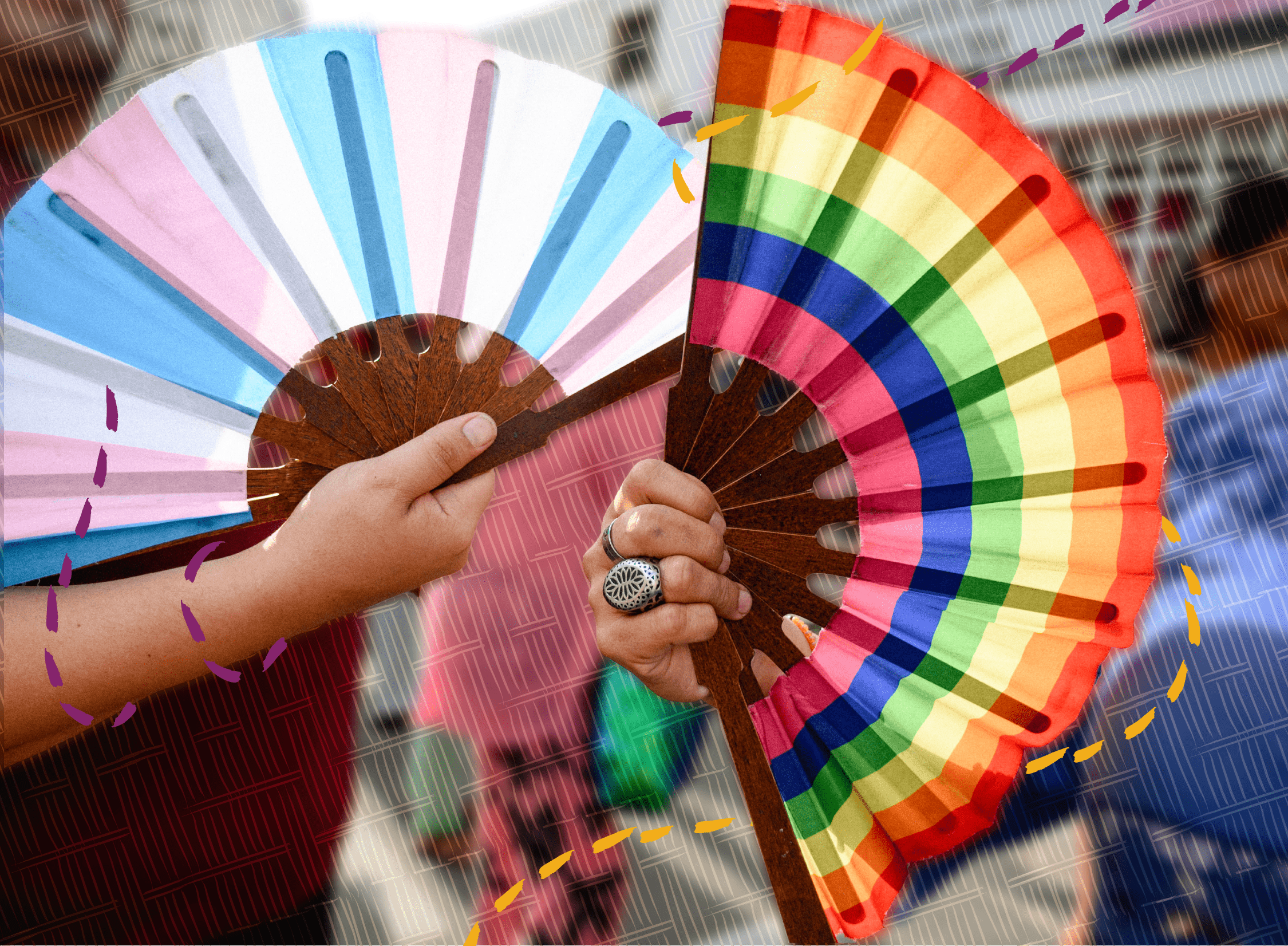Nicolle’s grandmother taught her an important lesson at a very young age: “You can be whatever you want to be, the only thing I ask of you, is that you make a difference.” That push led her to study, to not be intimidated, to meet other activists, and to become a leader in Rivera, her city, in the north of Uruguay.
This article was written by Lucía Péres, edited by Eloísa Oliva and translated into English by Christina Hamilton.
Nicolle is 35 years old, she has many diplomas hanging on the wall, she has done a lot of training and has a lot of experience. Nevertheless, she is still looking for work: “Hopefully, fingers crossed, this year I’ll get a job. I applied for a vacancy, maybe they’ll call me. I just keep on going, pushing on, pushing forward because we always have to keep going,” she says in her fast and closed mix between Portuguese and Spanish.
She lives in Rivera, capital of the department of the same name, located in the north of Uruguay. Her day-to-day life is spent between housework, caring for her animals, studying and her incessant and sustained activism for the rights of LGTBQ+ people. She is the Asociación Trans del Uruguay (ATRU) representative in her department and a member of the collective called Riversidad.
At the age of 6, she began to feel like she was a girl. At the age of 14, reaching adolescence, Nicolle began to live her identity. Despite being an excellent and passionate student, she dropped out of high school because the harassment and discrimination she faced every day there were unbearable for her. That was also why Nicolle began to live more at night than during the day, as a way of going unnoticed. Like many trans women in Uruguay, sex work at one point in her life was the only employment option. That’s how she met the bichas, her fellow sex workers.
“The bichas are my sisters in the cause, in the struggle, they are my family,” Nicolle says, and explains where the term comes from: it’s a Yoruba expression of identity, a code of belonging among trans women who are sex workers. It was the bichas who pushed her into activism. “I really miss those who’ve died from HIV or those who were killed. That’s why I always say, I will never forget where I come from, everything I went through to be the woman I am today. That’s what I always say to the girls: we can be pretty, we can be beautiful, but let’s not forget our origins.”
Discovering activism
“You can be whatever you want to be: trans, transvestite, pansy, but the one thing I ask you to do is to make a difference,” Nicolle remembers her grandmother telling her.
From those origins, from those struggles, come her desire to make the rights of trans women and diverse identities effective. With the mandate to make a difference, Nicolle began to look for spaces for activism. That is how she met two trans activists from Montevideo and began a learning and discovery process that led to her becoming the person of reference for ATRU in Rivera, and which led to her feeling more and more how important it is to establish networks and alliances with other collectives.
Nicolle had known about the Riversidad collective for some time. Luis and Sebastián, two of its founders, were activists and leaders in the town. The synergy between both organisations occurred naturally when they began to work together. “We were always in the same places, organising things together, working along the same lines, but we were two separate things. Our collective didn’t really represent the entire acronym (LGBTIQ+), there were no trans people,” says Luis.
Nicolle joined the collective and began to imprint the perspective of the trans collective on Riversidad. Since then, six years ago, the collective has been recognised as a reference organisation. Nicolle’s incorporation meant the confluence of different collectives, but which worked with the same goal: that the rights-based approach and perspective grow not only in their department, but across the north of Uruguay.
Personal and collective processes
“Intertwined allowed us to consolidate this fusion. We were able to explore other ways of doing activism,” says Luis. Intertwined was an initiative that Fondo de Mujeres del Sur (FMS) implemented between 2021 and 2023, within the framework of the priority area called Eradication of Violence and Discrimination, to strengthen organisations that work on the front line with situations of gender-based violence1. For three years, FMS supported collectives and groups in the departments of Artigas, Cerro Largo, Rivera and Tacuarembó, particularly in areas with limited support networks and difficult access to state services. Riversidad was one of the grantee organisations.
Luis says that the grant was like a “defibrillator” for them: “We had been constantly struggling with the new government, budget cuts, threats to our rights, and the issue of how to work in a pandemic.” “Our experience over these three years has left us with a lot to continue with. As well as working on gender-based violence with a specific focus on LBTIQ+ people. Most projects and institutional programmes focus mainly on addressing violence against cisgender heterosexual women, and they do not address the particularities of the lives of LBTIQ+ people, who often suffer very serious forms of violence here in the north and even lose their lives,” he adds.
For Nicolle, Intertwined was an opportunity for collective growth that went hand-in-hand with very important personal growth. “I said, girls, Fondo de Mujeres del Sur is giving us the chance to continue evolving. I told them: Bichas, I’m going to finish high school, I’m going to go to university, I’m going to be the first trans woman sociologist. I always tell them that it doesn’t matter how difficult it is to get through high school, you just have to finish it, because education is the best tool for empowerment a trans woman can have,” she says.
“I feel that, thanks to this empowerment, and that opportunity provided by Intertwined, the image of a trans woman, the trans leader, changed a lot for the better. I myself realise when I watch the interviews, the evolution, of what I was like in 2021 and what I am like today,” says Nicolle.
A chain of transformation
Florencia and Erika, two trans women who are members of the Riversidad collective, say that Nicolle was a leading reference figure for them. “I met Nicolle at one of my first marches in Rivera,” says Erika. “I was starting my transition. Then we communicated via social media, and she provided guidance about how I could make the change at the civil registry because I didn’t have much information (…) and later I became interested in participating in Riversidad. That was when I started going to meetings, participating more in activities, in the marches,” she adds.
“She is a true activist; she is a great colleague. I am very grateful to her and the Riversidad collective, who’ve given many trans women the opportunity to learn how to defend ourselves in the world we live in, to meet, to talk, to support each other,” adds Florencia.
Nicolle reflects on the results of the process that Riversidad has undertaken in these three years of support through Intertwined: opened up new opportunities for LGBTIQ+ people, and became a lead organisation for the community in general, and for trans women in particular. Nicolle imagines herself as another link in a chain of transformation: what she received she gives back, she tries to provide support for others, just as others did in her life. It is always and above all, as her grandmother said, about making a difference.
The stories shared show what community networks of women are capable of, what they do, what it means to have a way out of isolation and to be able to begin to think about a shared future with others.
Strengthening these strategies is the way we choose to build lives free from violence. With your donation, you can strengthen these networks so that more organisations can continue with their work. Join the campaign to strengthen the networks that keep us Together, Stronger and Alive!!

- Intertwined is an initiative that we implemented in partnership with FLACSO and Asociación Civil El Paso, and with support from the European Union. The project sought to strengthen organisations that work on the front line with situations of gender-based violence in the departments of Artigas, Cerro Largo, Tacuarembó and Rivera in Uruguay. ↩︎

